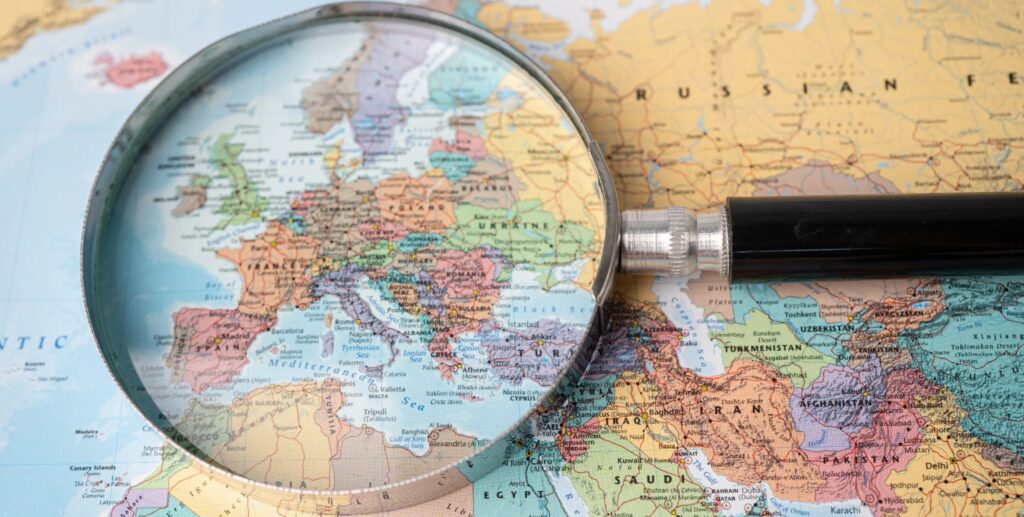Maximizing Real Estate Earnings Long-Term by Living Overseas: Strategies Revealed

Building a real estate portfolio that will enable you to leave your job and become financially free can be challenging, particularly if living expenses become an obstacle. Decreasing costs overseas could be one effective strategy to quickly establish an impressive U.S. portfolio.
Why it Is Difficult to Save in the US mes According to the Bureau of Labor Statistics’ Consumer Expenditure Survey, an average American household earned $94,003 before taxes in 2022 before spending $72,967 (just over $6,000/month in expenses), including $24,298 spent on accommodation (about $2,000 /month on rent or mortgage payments).
Earning nearly $73,000 a year through passive income to be able to consider leaving your job is no small task, with 33% of most expenses going toward living costs in America and therefore making saving sufficient for real estate investment difficult.
Real estate investing may seem unattainable for older Americans in their 50s and 60s; as of 2023, the median 401(k) balance among Americans aged 50-60 was $57,000, according to T. Rowe Price financial advisors; 65-year olds should save 7.5%-13.5% of annual gross income as advised by financial advisors T. Rowe Price. With adults living longer lives than ever, outliving your savings increases the fear that an inheritance will never reach its intended beneficiaries.
Remote Working Provides Options
As living costs have skyrocketed in America since the pandemic hit, remote work has also seen an exponential surge. Although estimates vary widely, BLS estimates that 27% or more of American workers were engaged in remote work at least part-time by August/September 2022 (some academic surveys have suggested 50%).
According to Tim Ferris’ best-selling Four-Hour Work Week book, one key path towards financial independence is “living on pesos while earning dollars”.
Working overseas where income costs are much lower can help expand a real estate portfolio quickly and affordably. Also, living in another country will lower your debt-to-income ratio and make borrowing for investments much simpler.
According to International Living, these countries offer some of the cheapest places for couples looking for a comfortable middle-class lifestyle that meets budgetary expectations – including transportation costs, food expenses, quality healthcare needs and other expenses.
Mexico’s overall monthly cost of living: $2,000.
Spending much less than $2,000/month is entirely possible. American expat M’kali-Hashiki Nln lives in Oaxaca, Mexico in a two-bedroom furnished apartment and estimates her monthly spending between $800 to 900; though this figure could decrease further if she lived somewhere cheaper, walked more, and used less taxis.
Overall monthly cost of living: $1,900
Living comfortably outside a major city for less than $1,900 monthly can be achieved. Aaron Williamson, an IT worker formerly from Bay Area who now earns American salary told International Living that they knew they’d save at least 30% from their North American burn rate without budget restrictions.
Malaysia’s average monthly living cost: $2,000.
Living and working in Asia can be extremely cost-effective if you don’t require being within Western time zone. Once outside major cities, living in a three-bedroom apartment with sea views that costs as little as $300 can be found. Transportation links are excellent, food delicious, and there are even bucket airlines connecting all parts of Asia together, enabling you to experience its culture.
Thailand: Monthly living costs estimated between US $2,000-2,500
Thailand is an attractive choice if you seek paradise with a diverse international community. A one-bedroom luxury beach villa at Koh Samui will cost $830/month while rent for quality apartment in Chiang Mai may only cost $250.
Overall monthly cost of living: $2,000 in Colombia
Colombia has come a long way since its violent past. Now a hub for digital nomads with quality healthcare and exciting attractions such as Medellin, Bogota and Cartagena; cost-of-living will decrease drastically when moving into smaller cities like Manizales or Pereira; however expect to pay around $700/month in Bogota, $500 in Cali Pereira Bucaramanga for renting an upscale apartment and $750-700/month overall depending on where your rents.
How one expat plans to utilize his digital nomad lifestyle and Airbnb Business to begin.
Faisal Qureshi was living in the Bay Area when the pandemic struck, working for a start-up and paying $4,000/month rent for an inadequately furnished one-bedroom apartment he could no longer afford despite having used all his income on living costs – never thinking he could ever own his own place.
Faisal recalls, “When everyone started working remotely, it didn’t take much convincing for me to move out of the Bay Area and into Mexico City where he could still stay close enough to America for business while living cheaper.
“Living in Mexico City for 50%-60% less than I was paying in California allowed me to save while still living comfortably, and when I switched start-up companies and joined another U.S. firm I no longer felt constrained geographically by needing to be near America – hence why I now reside in Buenos Aires instead.” Faisal had initially intended on saving up for a primary residence in Miami; however, having such amazing experiences overseas became addictive and led him down an unexpected path of exploration and self discovery.
“Now my goal has shifted,” Faisal states. “I would like to buy an Airbnb-ready property in America so I can generate additional income while having access to tax benefits, appreciation and having somewhere secure to stay when visiting. Additionally, this property could serve as my primary home when necessary.”
Preparations Steps Before Moving Abroad If you’re considering living overseas as a way to save and invest more effectively in the U.S., doing some preparation beforehand is necessary. In addition to looking for accommodation in your desired new city and researching healthcare needs is necessary.
In contrast to the U.S., expats can enjoy affordable healthcare solutions and quality insurance options that will protect them in case of unexpected events.
International travel may not make financial sense if you plan to enroll your children in private international schools, however. You will join multinational executives and their families and pay more than at a U.S. state school; however traveling with babies or toddlers before school age could save significant childcare costs, giving you time to purchase either primary residence or investment property before raising children becomes financially burdensome.
Final Thoughts
If you can work remotely and are drawn to travel, working abroad could be the perfect way to build up a real estate portfolio. From saving for one or two homes abroad without compromising lifestyle to accruing property here in America without disrupting it altogether; consider booking your flight to kick start your investment success.







